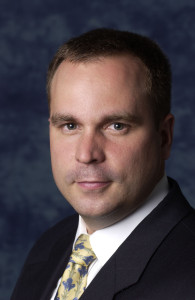The 2012 report will be the third annual Assessment of Country Energy and Climate Policies that we have worked on. We’re very excited about it because of two new developments. This year’s report is based on in-depth interviews with senior energy industry executives. It also contains an enhanced Energy Sustainability Index that will better highlight which countries are the leaders in providing affordable, secure and environmentally sensitive energy. We always look to improve the Index while balancing the need for stability. This year we improved the environmental impact mitigation to better reflect industrialization and per capita consumption. The social equity dimension was also similarly improved to reflect the quality of the electrical system.
What’s the idea behind it?
The guiding premise for this year’s report is that achieving energy sustainability involves efforts from both the energy industry and from policymakers. The 2012 report is focused on the perspectives of senior energy executives and the 2013 report will focus on the perspectives of energy ministers.
It is our hope that these reports combined will encourage dialogue between energy industry leaders and policymakers that will advance our collective knowledge and understanding of effective energy sustainability strategies and policies. For example, the 2012 and 2013 reports can be the catalyst for productive discussions and debates at the WEC’s 2013 World Energy Congress.
How do you see the Assessment influencing policy?
The Assessment is aimed to help identify how countries can best address the trade-offs involving the often conflicting goals of energy security, social equity, and environmental sensitivity. We and the WEC refer to this challenge as the “energy trilemma”.
The 2012 and 2013 reports are designed to help both policymakers and the energy industry leaders to address some difficult questions. These include: What does the energy industry need from policies and policymakers to succeed in providing environmentally sustainable, affordable and secure sources of energy? What are the best processes that will help the industry engage in effective dialogue with policy makers? What do policy makers need from the energy industry? What are successful policies and why are they successful?
How do you go about putting together the Assessment?
The 2012 report is based on a series of interviews with CEOs and senior executives in the energy industry around the globe. Most of the interviews have been conducted in person by Oliver Wyman partners. We’ve spoken with about 40 energy industry leaders and have captured insights that reflect the views from a wide range of sectors in the energy industry and geographic locations, many at very different stages of economic development.
The interviews reveal that even though energy systems around the world remain at vastly different stages of development, they all share the common problem of being far away from attaining sustainable energy systems.
The interview insights have been supplemented with the results of the Energy Sustainability Index. The project Steering Group is also incredibly helpful in providing their insights and guidance as we draft and prepare the report.
How receptive have your interviewees been?
Senior energy industry executives have been very receptive to the interviews and to our questions. We’ve really appreciated their time, candour, and thoughtfulness in addressing the issues we wanted to explore in the report. The energy industry is very aware of the challenges we face in providing secure, accessible and affordable energy. They are committed to developing sustainable solutions.
How valuable has your collaboration with the WEC been?
The process underlying the 2012 and 2013 reports has been possible only because we are collaborating with a world-class organization such as the WEC. The process depends on the WEC’s unique role and capacity to bring together policymakers and energy leaders to capture insights and expertise. The WEC team also brings a high degree of professionalism and a deep knowledge of the energy sector to the process.






